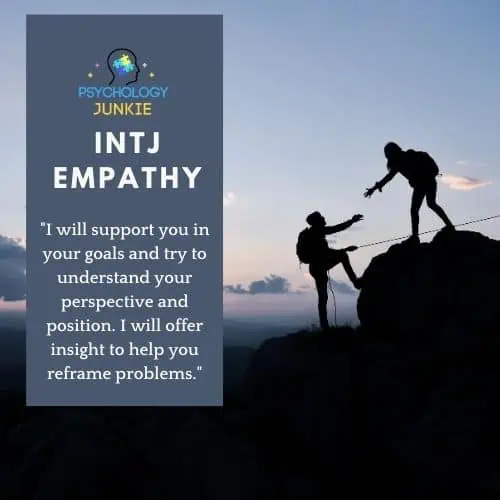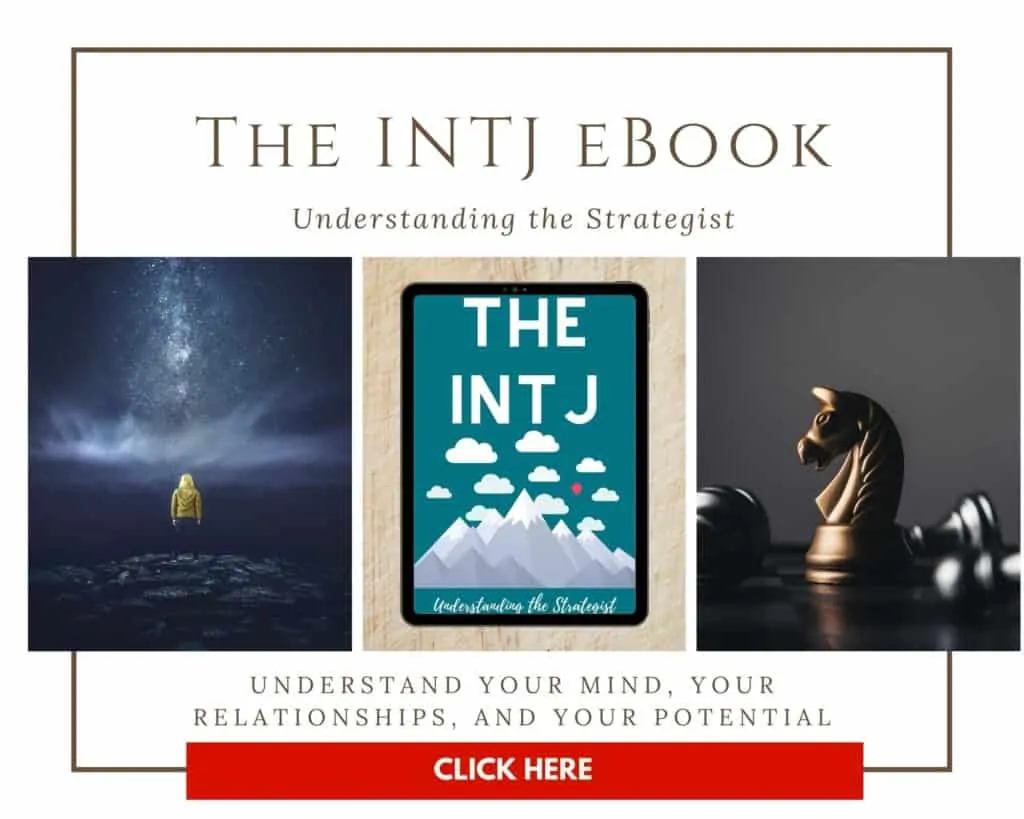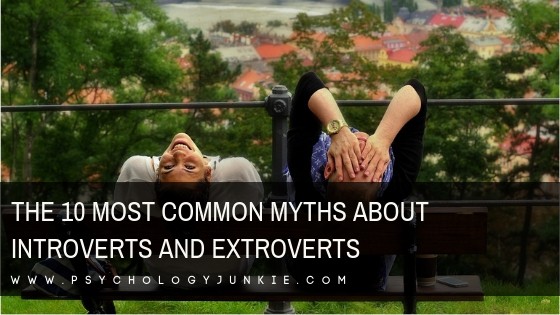Why INTJs Struggle with Loneliness (and How to Cope)
INTJs often have a demeanor that exudes confidence and autonomy. Looking at them, there are times you’d think they’d rather watch paint dry than go to a party (and, in fact, most probably would). But this introverted, self-contained nature doesn’t mean that INTJs don’t struggle with loneliness. In truth, many INTJs feel like misfits in a world full of people who couldn’t be bothered to understand them. Today we’re going to look at some of the root causes behind the loneliness that INTJ’s face, as well as some strategies for breaking free from loneliness. Let’s begin!
Not sure what your personality type is? Take our informative personality questionnaire here. Or you can take the official MBTI® here.

Table of contents
- Understanding INTJ Loneliness
- “All of humanity’s problems stem from man’s inability to sit quietly in a room alone.” – Blaise Pascal
- Navigating the Perception of INTJ Insights
- The Challenge of Extraverted Feeling for INTJs
- Coping Strategies for INTJs Facing Loneliness
- What Do You Think?
- Other Articles You Might Enjoy:
Estimated reading time: 8 minutes
Understanding INTJ Loneliness
INTJs are a rare breed, making up a mere 2.6% of the population. Naturally, this makes it a bit harder for them to find “kindred spirits” (thank you, Anne of Green Gables for the term). Unlike more gregarious personalities, INTJs aren’t looking for a bunch of casual friends or busy social gatherings, instead they crave the depth found in fewer, more intense connections.
Despite their often-misinterpreted stoic exterior, INTJs are deeply passionate when it comes to their values, knowledge, and quests for truth. An INTJ’s loneliness is not a simple yearning for social interaction—it is a desire for intellectual companionship, for someone who can spar with them in debates over theories, ponder the intricacies of the universe, and appreciate the potency of discussions that stretch beyond mundane small talk.
Want to talk about the latest fashions at the Oscars? Probably find someone else.
Want to talk about the origins of the universe or the long-term implications of deforestation? This is INTJ territory.
INTJs are big-picture people. If you find joy in chatting about the minutiae you probably won’t find as much joy with the INTJ. Chances are, you’ll find them gazing off into the distance considering the implications of AI on future generations while you discuss your grandmother’s gelatin recipe. But if you’re someone who likes to dive deep, well, then an INTJ might be just your man (or woman, etc,.).
But here’s the thing, not that many people do want to dive deep. Our society values small talk and easy conversation, but that’s just not where the INTJ thrives. In a world where superficiality is rewarded and depth is often overlooked, it’s no wonder that INTJs can feel misunderstood and lonely.
“All of humanity’s problems stem from man’s inability to sit quietly in a room alone.” – Blaise Pascal
For INTJs, there is a strong desire to be alone to process the mysteries of the universe. There’s a hunger for truth, understanding, knowledge, and mastery.
But INTJs are also human.
Even INTJs need human connection, relationships, warmth, and friendship. But all too often, INTJs will either push their feelings under the rug because they’re not “logical” or they will try to attend social gatherings only to feel completely run down and exhausted afterwards.
Navigating the Perception of INTJ Insights
One of the nuanced struggles INTJs face is how their insights and predictions are often perceived by others as too “out there” or esoteric. Their intuitive nature, combined with a relentless pursuit of knowledge, enables them to make connections and foresee outcomes that are not immediately obvious to others. This foresight, while a powerful tool in strategy and innovation, can sometimes place INTJs on the outskirts of intellectual acceptance.
For INTJs, their inner world is rich with ideas and possibilities, exploring scenarios far beyond the present moment or the tangible. When they share these futuristic visions or deep analytical thoughts, they can be met with skepticism or dismissal, which only worsens their feelings of alienation and misunderstanding. It isn’t that INTJs seek validation for every thought or theory they propose, but the continual pattern of their ideas being labeled as improbable or impractical can lead to a profound sense of isolation.
In a society that often prioritizes immediate, concrete solutions over long-term, theoretical ponderings, the INTJ’s propensity for “big picture” thinking is both their strength and their social Achilles’ heel. It’s not uncommon for an INTJ to be told they are “thinking too much” or that they should “come back to reality,” phrases that, although might be well-intentioned, can feel dismissive of the very essence of what it means to be an INTJ.
The Challenge of Extraverted Feeling for INTJs

INTJs, known for their visionary their introverted intuition (Ni), face unique interpersonal challenges due to the absence of Extraverted Feeling (Fe) in their primary function stack. This significantly influences their social interactions, particularly in contexts that demand a high degree of emotional expressiveness and the small talk so commonly valued in many social settings. For INTJs, chit-chat for the sake of filling silence is not only unstimulating but can feel profoundly inauthentic, leaving them disinterested and disconnected in many conventional social gatherings.
The INTJ’s tendency to bypass trivial exchange in favor of meaningful conversation is not without its drawbacks. In environments where first impressions hold sway, the INTJ’s disinterest in engaging in surface-level dialogue can mistakenly be perceived as aloofness or indifference. Furthermore, their lack of Extraverted Feeling means they may struggle to spontaneously express the expected social emotions – amusement, light-heartedness, or feigned interest – when they are, in reality, mentally miles away, dissecting the next big idea or problem that has captured their interest.
This gap in social “finesse,” or the ability to effortlessly navigate the emotional currents of a conversation, can inadvertently create barriers to forming new connections. People may find INTJs difficult to read or cold, not realizing that beneath the surface is a deeply thinking individual who thrives on substantial, intellectually engaging interactions. The INTJ’s challenge is not a lack of desire for connection but finding a common language in a world that often values immediacy and emotional expressivity over depth and introspection.
Many INTJs have to learn to “fake” having Extraverted Feeling in order to get by. They begrudgingly learn how to engage in small talk or appear interested and engaged in social situations, often at great personal effort. However, this is not a sustainable solution for INTJs who are prone to feeling drained and emotionally exhausted by activities like this.
Coping Strategies for INTJs Facing Loneliness

Engage with Likeminded Friends
If you have any, reach out to friends who share a passion for similar interests. Broach topics that stir both your intellects, and invite them to a space conducive to conversation. This can be the spark needed to kindle a deeper connection and stave off loneliness.
Immerse Yourself in Literature or Writing
Books provide a sanctuary for INTJs, offering wisdom from ages past. Writing, on the other hand, is a way for INTJs to unravel their insights and shower the world with original thought. Octavia Butler, Jane Austen, and Isaac Asimov were all INTJ authors who forever changed the literary world! Whether reading or authoring, INTJs can find solace in the written word.
Connect Virtually with Groups
The digital age opens up new possibilities for INTJs to find niche communities where they can explore topics they naturally enjoy. Join online groups that resonate with your interests—you’ll find that even virtual discussions can offer substantial relief from solitude.
Volunteer for Fulfillment
Search for causes that align with your values and immerse yourself in volunteer work. The camaraderie built when contributing to the greater good is often the most substantial. You may find that you enjoy people of wildly different personality types once you work together for a cause bigger than yourselves!
Explore Musical Creativity
Music can be both an escape and a creative outlet. When you feel like nobody understands you or there’s a thought or feeling you can’t express, music often can be the perfect bridge—something that can help you find solidarity and expression.
Spend Time in Nature
Nature is the INTJ’s refuge—an ideal companion for contemplation. A serene walk in natural surroundings can refresh the mind and lift spirits weighed down by loneliness.
Four-Legged Friends
Pets offer unconditional affection, something that INTJs might appreciate if they’re struggling with human companionship. The loyalty and love of a pet can do wonders for someone struggling with feelings of isolation.
Dabble in Art and Open Conversation
Art museums are places of introspection and can be social platforms too. Open yourself to conversations about the artwork; these dialogues can often touch on deeper topics that satisfy the INTJ’s thirst for substance.
Cultivate Patience
It’s crucial not to anchor your perceptions purely on first impressions. Remember, the surface level—marked often by small talk and initial awkwardness—rarely mirrors the profound depths of a person. The individuals you meet might initially rely on small talk as a bridge to more comfortable interaction; but this doesn’t mean they don’t have depth or intellectual curisoity. Relationships and friendship need time and patience before people can really reveal their deeper thoughts. Virtually no one lays bare their most profound insights or fascinating ideas upon first meeting. Giving people the chance to slowly unfold allows for unexpected connections and discoveries that could enrich your life.
What Do You Think?
Now that we’ve explored some coping strategies for the unique challenges faced by INTJs in navigating social interactions and combating loneliness, we’re eager to hear from you. Have you found particular strategies effective, or perhaps discovered alternative approaches that resonate more with your outlook? Maybe you have stories where these methods have significantly impacted your social experiences or helped you overcome feelings of isolation. Whether it’s a personal reflection, a questioning thought, or a nugget of wisdom you’ve picked up along the way, we invite you to share your thoughts and feelings in the comments below.
Other Articles You Might Enjoy:
INTJ Author Spotlight: Octavia Butler
7 Extremely Annoying Challenges INTJs Face On a Regular Basis
10 Things People Misunderstand About INTJs













Thank you for the informative and insightful article on the INTJ personality type, Susan.
I wish I had had access to this kind of information 50 years ago when I was a teenager and then a young adult; it would have helped spare me (and some of my family members) a lot of heartache and frustration.
I first came across the Myers-Briggs type categorization about 15 or 17 years ago when a nurse in a college class I was taking with her recommended I read Dr. David Kiersey’s book “Please Understand Me.” It was like seeing the sun rise. Reading it I kept saying to myself, “no wonder no one understands me [as an INTJ].”
Since then, like apparently a lot of INTJs I’ve managed to try to practice “small talk” and chatting but doing so still grates on me and probably always will.
In one way I was lucky: for about ten years I worked as an instructor in a higher education environment where people with this and similar personality types respected me. Instead of being shunned and misunderstood, we were appreciated and respected for our knowledge and learning. Now retired and relegated to the “real world” of “chatterers” and people who don’t seem to know their *ss from their elbow I pretty much keep to myself to avoid endless frustration. Not to mention the “drama” of people who often seem to be at war with themselves and their own frustrations and inability to plan more than ten minutes ahead. As Spanish speakers say, “basta!” Enough with the idiots!
Nice post. I can really relate to it, although I am not an INTJ. I do not find connection with people easily and I do not like smalltalk. Sometimes I feel like an alien and that I have nothing in common with other people. I do not mind to be different, but sometimes there is this void. This is the same reason why I used to believe that I was introverted. An ENTJ.
I loved the article. Great read. As an INTJ, I don’t struggle with loneliness. I struggle more so with feeling alone, like the world does not understand me. That constant misunderstanding of my nature makes me feel more alone than lonely.